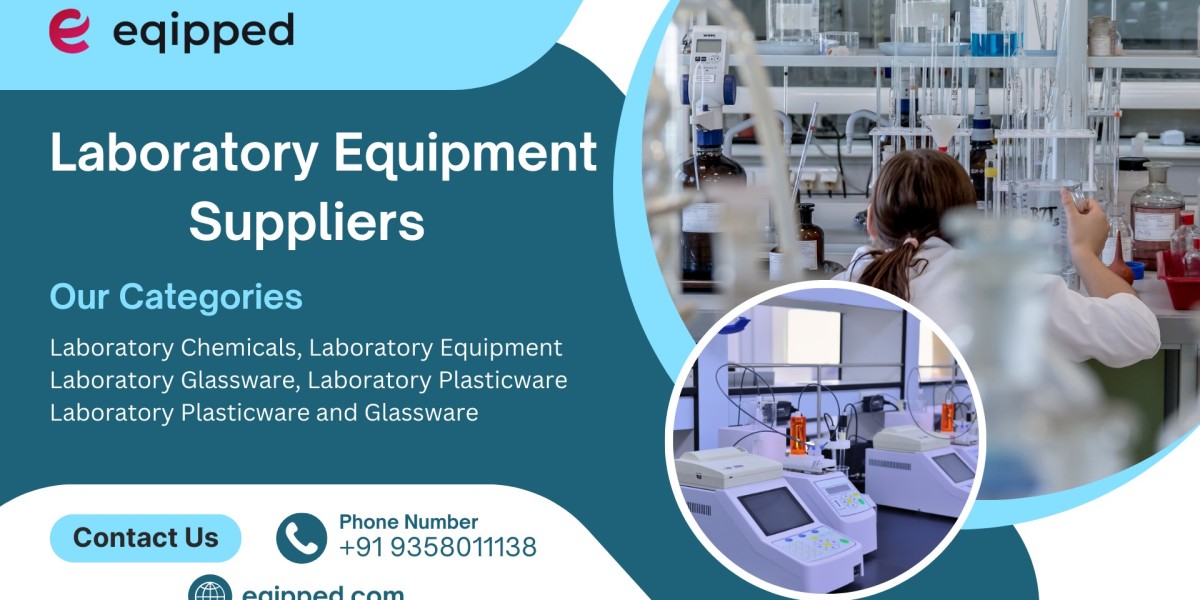Choosing the right glassware is more than practical—it’s foundational to scientific accuracy. Whether you're in an academic lab, R&D setting, or industrial quality control, Eqipped's Laboratory Glassware collection delivers the precision and reliability your work demands.
Why Quality Laboratory Glassware Is Essential
1. Exceptional Thermal Resilience
High-grade borosilicate glass is built to withstand rapid temperature changes without cracking. It handles cycles from high heat to freezing conditions, making it ideal for boiling, sterilization, and distillation tasks.
2. Superior Chemical & Environmental Stability
This glass resists acids, alkalis, and solvents—it won’t stain, scratch, or degrade. Plus, its non-porous surface minimizes residue retention—critical for repeat experiments or sensitive samples.
3. Crystal-Clear Visibility
Transparent clarity means you can easily observe reactions and read measurements like meniscus levels—enhancing precision in every experiment.
4. Calibrated Accuracy
Tools such as volumetric flasks, pipettes, and burettes adhere to metrology standards—with precise calibration and tight tolerances—delivering accuracy you can trust.
5. Built to Last
Though a premium choice initially, quality glassware delivers long-term value. With proper care, it withstands repeated cycles of heating, cooling, and cleaning without degrading.
Must-Have Glassware for Every Lab
| Type | Ideal For |
|---|---|
| Beakers | Mixing, heating, and general use |
| Erlenmeyer Flasks | Safe swirling and boiling with minimal spill |
| Volumetric Flasks | Preparing accurate solution volumes |
| Graduated Cylinders / Pipettes | Precise liquid measurements |
| Burettes | Controlled dispensing—perfect for titrations |
| Test Tubes / Boiling Flasks | Heating, sampling, and qualitative tests |
| Condensers / Funnels | Distillation and fluid separation applications |
| Reagent Bottles / Desiccators | Dry storage and preserving chemical integrity |
Best Practices: Care & Maintenance of Lab Glassware
Avoid Thermal Shock
Always allow heated glassware to cool gradually. Sudden temperature shifts can cause breakage.Gentle Cleaning
Use soft brushes and mild detergents. Most lab glassware can be autoclaved—just follow safe sterilization procedures.Regular Inspection
Remove any chipped, cracked, or stained items—damaged glassware compromises safety and accuracy.Cushioned Storage
Store glassware using padded racks or bins—keep items separated to prevent nicks or cracks.
Application Highlights
Education Labs – Durable glassware that withstands frequent student use while maintaining clarity.
Research & Development – Precise, calibrated tools for accurate analysis and repeatable results.
Pharmaceutical & Industrial Labs – Reliable, standardized glassware that meets quality testing demands.
Biotech & Microbiology – Sterilizable and transparent solutions suited for sensitive culturing and assays.
Why Labs Trust Eqipped’s Glassware
Wide Selection – From everyday essentials to specialty instruments.
High-Performance Design – Focused on clarity, durability, and precision.
Long-Term Value – Cost-effective investment through consistent, dependable use.
Expert Support – Assistance with choosing and using the right glassware for your workflow.
Safe Delivery Across India – Well-packaged shipping ensures your glassware arrives intact.
Final Thought
Precision starts with the right tools. Equip your lab for success with Eqipped’s Laboratory Glassware—where clarity, performance, and reliability converge.
Explore the full collection here:
Laboratory Glassware Collection
Frequently Asked Questions
| Question | Answer |
|---|---|
| What makes borosilicate glass ideal for labs? | It resists thermal shock and chemical corrosion—perfect for demanding tasks. |
| When to use a volumetric vs. Erlenmeyer flask? | Use volumetric for accurate measurements; Erlenmeyer for safe mixing and heating. |
| Is all glassware safe for autoclaving? | Most borosilicate pieces are, as long as cooling/heating is gradual. |
| How do I prevent damage during storage? | Store with padding and avoid stacking to minimize the risk of chips. |
| Are specialty tools like condensers necessary? | Yes—for workflows such as distillation or phase separation where control is critical. |









